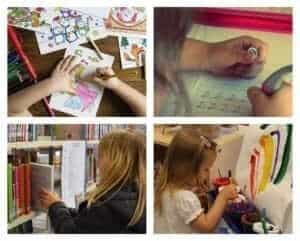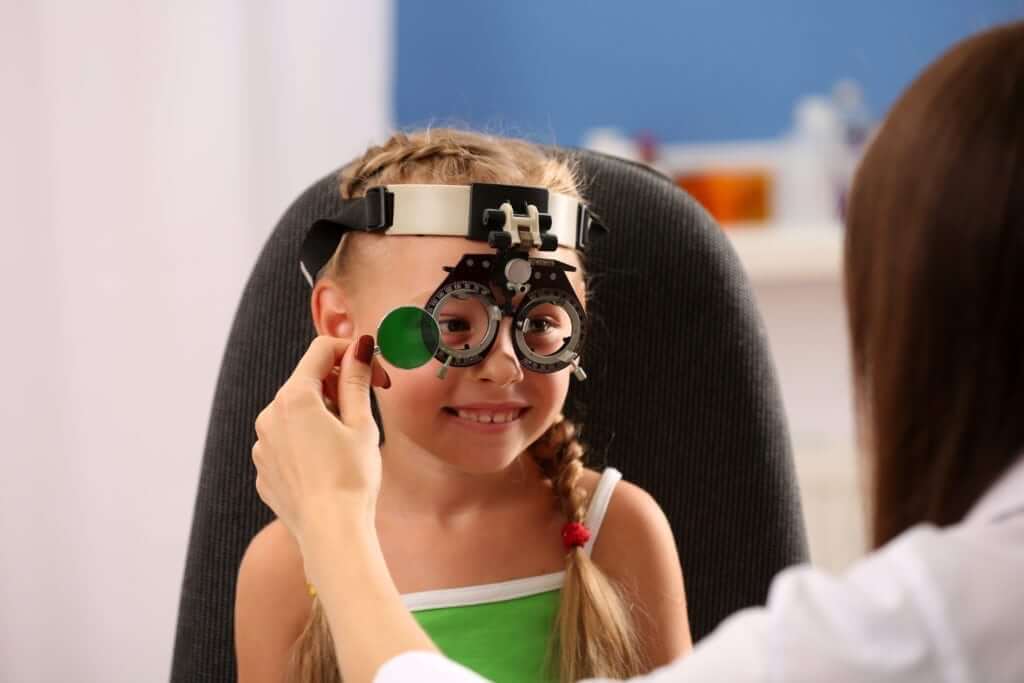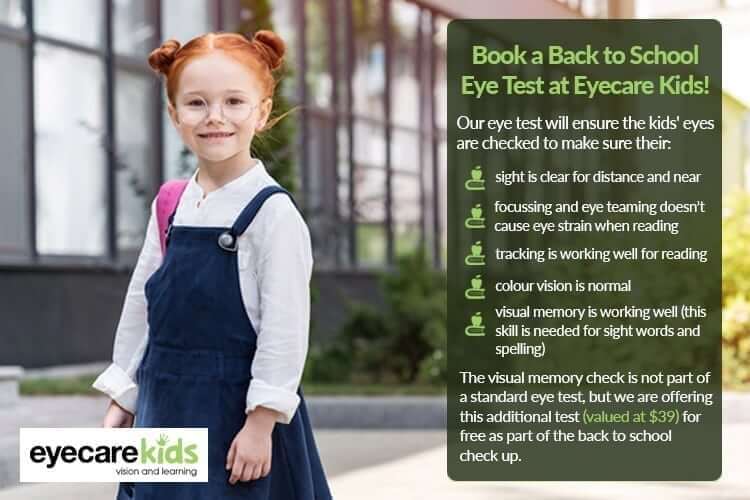Don’t overlook an eye test in the excitement of getting your child ready for school!
Children rarely report vision problems, often assuming everyone sees as they do. Roughly 1 in 5 children have an undetected eye condition which can affect their learning such as:
- amblyopia (lazy eye)
- astigmatism (distorted vision)
- myopia (difficulty focusing at distance)
- hyperopia (difficulty focusing at near)
- binocular vision problems (both eyes don’t function as a team)
- focusing difficulties
- eye tracking difficulties
“An eye exam is important so children can get a headstart on learning,” states Dr Alexander Du, behavioural optometrist at Eyecare Kids. “A child can easily pass an eye screening test and have 20/20 vision but may still have a visual problem that’s easily written off as behavioural issues such as a learning disability, short attention span, stress or ADHD. This is why a comprehensive eye test before starting school is critical.” (Click here for a complete list of observable clues to classroom vision problems.)
 School-age children accomplish 80% of their learning through sight. They need to be able to see well in the distance, as well as read comfortably. They spend a lot of time doing recreational activities that require good vision, and they need good hand-eye coordination during playtime.
School-age children accomplish 80% of their learning through sight. They need to be able to see well in the distance, as well as read comfortably. They spend a lot of time doing recreational activities that require good vision, and they need good hand-eye coordination during playtime.
Undetected vision problems can affect your child’s ability to learn and can negatively affect their behaviour.
But a back-to-school eye test can prevent this!
An eye exam can detect visual problems before they lead to a bigger problem like poor adjustment at school, learning difficulties, or losing interest in learning and schooling.
 Dr Du states, “Do you want to maximise your child’s learning this year? Make sure they are vision-ready for school. The recommended time between eye tests for school-aged kids is every 1-2 years if their last eye check was normal. But children who wear spectacles and contact lenses should be tested annually or even more frequently as recommended by their optometrist or eye doctor. Your optometrist or eye doctor has all the equipment required to test children’s vision, so if your child still hasn’t had an eye test done for this school year, that should be on top of the to-do list.”
Dr Du states, “Do you want to maximise your child’s learning this year? Make sure they are vision-ready for school. The recommended time between eye tests for school-aged kids is every 1-2 years if their last eye check was normal. But children who wear spectacles and contact lenses should be tested annually or even more frequently as recommended by their optometrist or eye doctor. Your optometrist or eye doctor has all the equipment required to test children’s vision, so if your child still hasn’t had an eye test done for this school year, that should be on top of the to-do list.”
Give your child the best possible start this school year by ensuring good vision. It’s as simple as an eye test.

